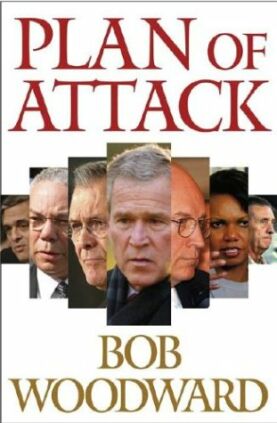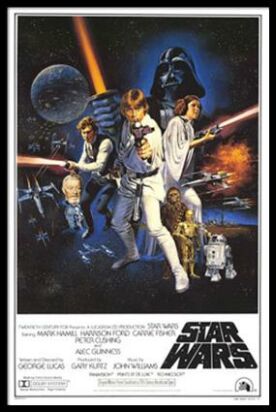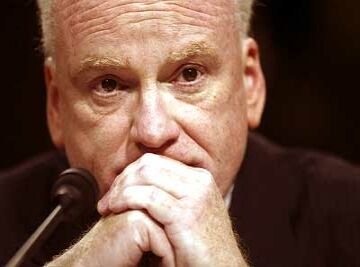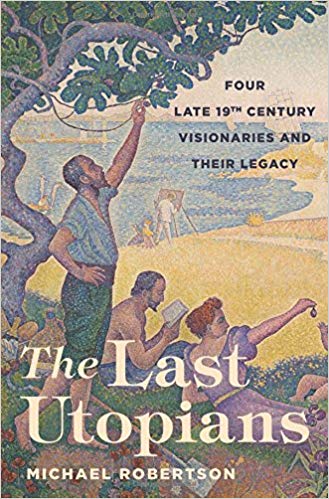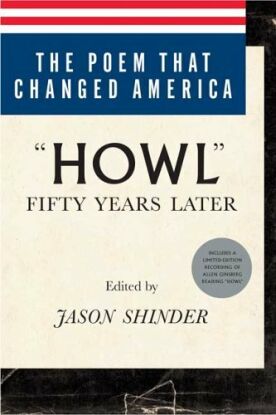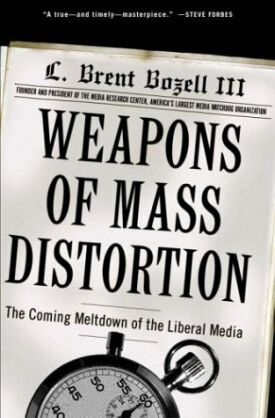Not Made Up But Unmade
From The New CriterionHere’s how Bob Woodward’s new book, Plan of Attack, [Simon & Schuster, 468 pp., $28] introduces the reader to the President of the United States on page two — according to Woodward’s usual practice, as if he were a character in a novel and we knew nothing about him: “Large and physical with a deep stare from small brown eyes, Bush, 55, has a quick, joshing manner which at times borders on the impulsive. Focused, direct, practical but not naturally articulate, he had been elected to his first political office as governor of Texas only nine years earlier, a novice thrust into the presidency.” In fact this last statement is a mistake on both counts. Bush had been elected governor seven years earlier, not nine, and he was, though not as experienced in government as most presidents, hardly a novice, having worked as a political adviser to his father during the first Bush administration.
But let that pass. What does Woodward mean by “naturally articulate”? Are there people who are unnaturally articulate? One thinks, perhaps, of the late philosophical impresario Sir Isaiah Berlin, or the late actor, playwright and wit, Sir Peter Ustinov. But it hardly seems a valuable piece of knowledge to impart that Bush is no Isaiah Berlin or Peter Ustinov. Who had ever supposed he was? And if he had been, would he have been elected? Would he have run? Would he, as governor of Texas, ever have been in a position to run? As we look back over the roster of American presidents, few indeed are those, at least after the Founding Fathers’ generation, who are unnaturally articulate, yet Bush’s natural inarticulateness, or perhaps unnatural inarticulateness, is regarded as being worthy of note to an audience which has been paying unusual attention to his public utterances for the past four years. Who could possibly be interested in such an observation? Here, in a nutshell, is the difference between knowledge and Woodwardian information.
And Plan of Attack, though it is as full of information as the rest of Woodward’s books — which is as full, as Shakespeare says, as an egg is full of meat — makes virtually no contribution to our knowledge either of President Bush and his administration or of the war in Iraq. Part of the problem is Woodward’s own inarticulateness, which really does seem unnatural in a man who has covered so many acres of newsprint in his life. The title of his book made me think briefly that for once he had been reading something other than his voluminous notes. In particular, it immediately suggested Siegfried Sassoon’s poem of the First World War, “The General.”
‘Good morning, good-morning!’ the General said
When we met him last week on our way to the line.
Now the soldiers he smiled at are most of ’em dead,
And we’re cursing his staff for incompetent swine.
‘He’s a cheery old card,’ grunted Harry to Jack
As they slogged up to Arras with rifle and pack.
. . . .
But he did for them both by his plan of attack.
Perhaps the cheery old Card was Andrew Card, President Bush’s chief of staff? But look in the index and you find — let’s see: Saddam International Airport, Salih, Ali Abdullah, Sargat, sarin gas, satellite imagery and intercept, satellite phones, Saudi Arabia — nope, no Sassoon. Nor anything else not at least as closely involved as the above with the planning for and execution of the invasion of Iraq in March of 2003. Woodward may be focused like a laser on that subject, but he has no point of perspective on it, no wider culture that would help him in converting information into knowledge.
Nor is there any stylistic grace. Woodward has taken to heart, if ever man did, Queen Gertrude’s injunction to Polonius: “More matter with less art.” Of course art, either in the form of wit or irony or Sassoonian anger and indignation, has never been quite in Woodward’s line, any more than poetry has. No such old-fashioned, literary concerns for him! He sees himself as a sort of journalistic engineer who aims to construct a massive edifice of truth out of the “evidence” he has gleaned from fantastic and indefatigable industry, so that all further history, artful or otherwise, must fall silent before it. But the world’s most famous and hard-working reporter is a lazy writer. His intention is to leave nothing to art — or to chance, intuition, or insight, so reducing his craft to a science. And so, of course, everything is wrong. Actually, this is an artful overstatement. Or rather an artful paradox, since everything is both right and wrong. It is right in detail — at least it is if we extend to him the courtesy of accepting an awful lot of pseudo-quotations as being close enough for government work — but wrong in conception. In fact there is no conception in the sense of a broader picture emerging out of the accumulated details, like a mosaic. That is why both the Bush and Kerry camps are recommending the book. You can see anything you want in it, though most people will only find their own prejudices confirmed. Which, of course, is the point, if you’re trying to write a best-seller.
My own industry as a reader was considerably taxed by the effort to get beyond page three of the book, where I found the following passage about the secrecy with which President Bush and his defense secretary, Donald Rumsfeld began developing, in November, 2001, plans for an invasion of Iraq:
Two years later in interviews, Bush said he did not want others in on the secret because a leak would trigger “enormous international angst and domestic speculation. I knew what would happen if people thought we were developing a potential or a war plan for Iraq.” The Bush-Rumsfeld-Franks work remained secret for months and when partial disclosures made their way into the media the next year, the president, Rumsfeld and others in the administration, attempting to defuse any sense of immediacy, spoke of contingency planning and insisted that war plans were not on the president’s desk. Knowledge of this work would have ignited a firestorm, the president knew. “It was such a high-stakes moment and when people had this sense of war followed on the heels of the Afghan decision,” Bush’s order for a military operation into Afghanistan in response to 9/11, “it would look like that I was anxious to go to war. And I’m not anxious to go to war.” He insisted, “War is my absolute last option.” At the same time, Bush said, he realized that the simple act of setting Rumsfeld in motion on Iraq war plans might be the first step in taking the nation to a war with Saddam Hussein. “Absolutely,” Bush recalled. What he perhaps had not realized was that war plans and the process of war planning become policy by their own momentum, especially with the intimate involvement of both the secretary of defense and the president.
You don’t have to be a high stylist or an arty type to be shocked by the poor quality of the writing here, which is full of mixed and broken metaphors, like the “leak” that would “trigger,” as Bush supposed, “enormous angst” or the administration’s attempt to “defuse” a “sense of immediacy” when what Woodward means is that it tried to convey the impression that there was no sense of immediacy. The same kind of thing is going on in the statement that “Knowledge of this work would have ignited a firestorm.” This is typical journalistic hype so worn out by now that Woodward doesn’t even bother to complete the metaphor, which most readers will understand to imply “. . .a firestorm of protest.” Yet few of these readers are likely to inquire any further into the metaphor’s significance, to put a tenor to this vehicle, to use lit-crit terminology, by wondering where the firestorm is or what it consists of or how it could be ignited by the mere knowledge that Bush was planning for war. The imagery is so tired that lazy readers will simply assume that they know what the lazy writer means. In fact he means — to change the figure — that the journalistic pack, of which Woodward himself is the lead dog, would bay themselves hoarse at this “knowledge” on the tacit understanding that it amounted to scandal, or at least that it could pass for scandal among the credulous members of what we laughably call the intelligentsia, even though most people would regard it as a matter of indifference. You can put that down as the definition of “firestorm” in your dictionary of journalese.
But the word “knowledge” is also misused here. Like virtually everything else in Woodward’s book, the news that the president and his cabinet started working on a war plan for Iraq in November 2001 is information, not knowledge. It is an unnecessary increment to our knowledge that he did, in fact, go to war in Iraq in 2003 and must, therefore, have begun planning for the war at some earlier date. By pinning down this date as November, 2001, Woodward adds nothing to our understanding either of Bush or of the war, but he is able to hint that there is about the fact that he was planning for war while ostensibly negotiating to avoid it something, even if nothing more than a soupçon, of scandal. Maybe it’s not enough to ignite one of his famous firestorms at this distance of time from the event, but those already inclined to accuse the President of corruption and skullduggery will know what to do with it. Woodward himself can only manage another crashing banality, “The story of Bush’s decisions leading up to the Iraq War is a chronicle of continual dilemmas, since the president was pursuing two simultaneous policies. he was planning for war, and he was conducting diplomacy aiming to avoid war. At times, the war planning aided the diplomacy; at many other points it contradicted it.”
When in human history, I wonder, has there ever been a war that did not involve diplomacy at some level, and so precisely the “two simultaneous policies” that Woodward mentions here? Once again, he gives the illusion of knowledge in the course of stating the obvious. Often he then goes on to produce a pseudo-profundity, designed to display his own superior wisdom, as in the concluding speculation of the passage above: “What he perhaps had not realized was that war plans and the process of war planning become policy by their own momentum, especially with the intimate involvement of both the secretary of defense and the president.” That “perhaps” is an uncharacteristic bit of artistry designed to suggest a becoming modesty but in fact to provide a cover for sheer guesswork — guesswork not only as to whether or not Bush was unaware that planning could become policy by its own momentum and even more guesswork as to whether or not it did so in this case. If you read the sentence carefully, the indicative “become” seems shocking in its arrogance. Where is his authority for the contention that plans and planning become policy? I detect here a distant echo of Barbara Tuchman’s Guns of August which 40-odd years ago made the claim — which seems rather silly now but was much credited at the time — that World War I was made inevitable by the mere existence of the German battle plan. But even if we stipulate that the thing is possible, the fact that there was planning for war and then there was war tells us nothing about the matter one way or the other.
But then all questions of “momentum” seem almost to settle themselves in a book like this one where the weight of information is always there to lend its inertia to the cause. It is only one of the ways for information of the kind Woodward specializes in to be misleading. Consider his quotation from the President himself, who was prevailed upon to provide the great journalist “access” of a kind no other could expect. Bush says: “It would look like that I was anxious to go to war. And I’m not anxious to go to war.” Indeed, he emphasizes: “War is my absolute last option.” It is, to be sure, an undeniable bit of information that Bush said this, but the fact is only a contribution to pseudo-knowledge. For what else could he have said? What else is it even imaginable that he would have said. This doesn’t mean that it is true or that it isn’t true but only that its truth or lack of it is irrelevant and unknowable. All we can really know about the matter is the tiny piece of utterly useless and unsurprising information that the President thought it worth saying in reply to a question, any question, from Bob Woodward, ace journalist and sniffer out of presidential scandal, that he was reluctant to go to war.
Such information is not only useless in itself, but its accumulation, like the intellectual equivalent of arterial plaque, restricts the flow of real knowledge. Even good and useful information must be treated with care, since it is like the bad and useless kind in producing the illusion of knowledge. Thus the book’s most highly-publicized bit of information, namely that the CIA director, George Tenet, told President Bush before the invasion of Iraq that the existence of Weapons of Mass Destruction there was a “slam dunk,” hardly amounts to a revelation. Even if you suppose that Bush would have gone to war in any case, he clearly would not have made so much of the WMD as a reason for doing so without some such assurance from his intelligence people — unless, of course, you belong to the paranoid anti-Bush crowd who assume that he knew all along that the WMD was a lie. And then the question becomes: Why would he have told so publicly and so emphatically a lie so likely — we may say so certain — to be found out?
In the same way, as Gregg Easterbrook pointed out, “It was treated as a headline. . . that Woodward asserts that George W. Bush privately told Condoleezza Rice, ‘We’re going to have to go to war.’ Everyone in the world has known for more than a year that Bush must have said things like this; who cares what the exact choice of words were? How can something that six billion people have known for a year be treated as a scoop?” There is, I think, actually an answer to that question. It is that journalism, as it is practised today, regards as a scoop any slightest scrap of information which, with the help of sufficient ingenuity, may possibly be regarded as confirmatory of the journalistic consensus. Information is meaningless without context, and so the media are forced to provide a rough-and-ready context of their own, a sort of default set of categories into which the ever growing piles of information can be shoveled, at least until there is time — if there ever is time — to make more sense of it. Woodward, not gifted in this particular way himself, is mostly content to use the categories already furnished to him by the journalistic consensus. “Bush is a religious nut,” says the consensus with oracular certainty; “Cheney was hell-bent on invading Iraq.” And Woodward, slavering like a bloodhound on the scent, is turned off the leash to go find the information that will prove it.
You don’t have to read far in the book before it becomes clear that he has proved it too, at least to the satisfaction of those who already knew it. It was in all the papers. But here is another way in which reading Woodward’s book is a waste of time as well as a painful experience to anyone with an ear for English prose. For the publicity needed to sell the book in quantities sufficient to pay for all those hours spent in interviews and other research depends on the book’s findings’ turning out to be pretty much in accord with the media consensus. The master of the art of obtaining interviews with others knows very well what he needs to do to be interviewed himself. Bush a religious nut! Cheney hell-bent on war! said all the headlines, in effect. But like the “scoop” that Bush told Condoleezza Rice that “We’re going to have to go to war,” they were headline news that people already knew. What, after all, would have been the coverage of his book if Woodward had found that Bush actually liked nothing better than curling up with a volume of Schopenhauer of an evening, or that Cheney was taking instruction in Zen Buddhism?
Knowledge, as we know, is resistant to information that does not confirm what is already known. Reviewers of Plan of Attack found in it no challenge to what they knew about Bush before they read it, only tons of more or less trivial information that they could pick and choose among to reinforce their prejudices. Thus we find that Michiko Kakutani of the New York Times finds in the book that the Bush White House is “committed to the ‘vision thing’ in a big way (promoting risky, sweeping ideas like exporting democracy and pre-emptive war) and the avoidance of any perception of wimpiness, a White House in many ways determined to avoid accusations once hurled at the president’s father” — and there’s the department of political psychobabble heard from. No wonder Miss Kakutani found it Woodward’s “most powerful and persuasive book in years.”
The question of what is good and bad or useful and useless information is bound to depend, for a high-profile information supplier like Bob Woodward, on what will fit his readers’ prejudices. In other words, a celebrity journalist is, to the extent that he is a celebrity, bound to hunt only the truffles of information that suit the delicacy of his readers’ palates. Surprises are not only bad they are virtually impossible. If any genuinely surprising information had been uncovered, anything that produced a real shock to the media consensus — as opposed to the affected shock in which they specialize — it would have had to be re-interred beneath a mound of banality and pointless information. Not only would it have endangered the subsequent publicity campaign for the book by providing television interviewers with material they would have had to work with and wouldn’t have known how to work with, but it would also have angered the already-angry partisans on both sides of our polarized intellectual and political world. Their minds are not so much made-up as they are unmade by a passionate desire not to be changed. Mr Woodward, by declining any effort of thought himself, has cleverly given both sides exactly what they want.
Discover more from James Bowman
Subscribe to get the latest posts to your email.

